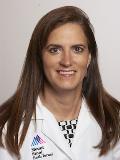12 Jan New Breast Cancer Screening Recommendations Carry Risks Of Later Diagnosis

Dr. Boolbol
MedicalResearch.com Interview with:
Susan K. Boolbol, MD, FACS
Chief, Division of Breast Surgery
Chief, Appel-Venet Comprehensive Breast Service
Co-Director, Breast Surgery Fellowship
Mount Sinai Beth Israel
Associate Professor of Surgery
Icahn School of Medicine at Mount Sinai
New York, NY 10003
Medical Research: What is the background for these new recommendations?
Dr. Boolbol: To make this final recommendation, the Task Force conducted a comprehensive review of the science since its 2009 recommendation and considered the public comments it received on its 2015 draft recommendation statement. Based on all of this, the task force issued their recommendations.
Medical Research: What are the main changes from current guidelines?
Dr. Boolbol: Presently, there are several different guidelines and recommendations regarding screening mammography. Depending on the group issuing the guidelines, the recommendations vary from annual mammography beginning at 40 years old to biennial mammograms from 50 to 74 years old. The Task Force continues to find that the benefit of mammography increases with age, and recommends biennial screening in women ages 50 to 74.
Medical Research: What impact may the new guidelines potentially have on insurance coverage for breast cancer screening?
Dr. Boolbol: This is one of the areas that is quite concerning. It is well accepted that screening mammography decreases the risk of death from breast cancer. Based on these recommendations, insurance companies MAY decide to decrease or limit coverage for screening mammograms for women less than 50 years old. Although the benefit of screening mammography increases with increasing age, there is still a benefit of screening women between 40 and 50 years old. The issue that has been raised is that of the harm of screening mammograms. The concern is that screening mammography may lead to false positives and increased anxiety for women. A false positive is where the mammogram revealed an abnormality that was not breast cancer.
Medical Research: What is the anticipated effect on women’s health as a result of the new recommendations?
Dr. Boolbol: At this time it is unclear what effect these recommendations will have on women’s health. If these recommendations are strictly followed, and women postpone screening mammography until 50 years old, we will begin to see larger breast cancer’s and breast cancer diagnosed at later stages. This can potentially have an impact upon how that individual breast cancer is treated. For example, at the present time, with early diagnosis, most women are able to undergo a lumpectomy as opposed to a mastectomy. If these guidelines are followed and women defer screening mammography until 50 years old, we may begin to see more advanced breast cancers and therefore more mastectomies may need to be performed. Larger breast cancer’s may also alter other recommended treatment such as chemotherapy and radiation. Over the past several decades, we have made enormous progress in the overall survival from breast cancer with five-year survival at the present time being approximately 90%. If these guidelines are strictly adhered to, we may start to see an erosion of that progress that is taking place in overall survival over the past several decades.
Medical Research: Is there anything else you would like to add?
Dr. Boolbol: These recommendations apply for women at average risk of developing breast cancer. Unfortunately, most women do not know which risk category they fall into. Women should discuss their individual risk of breast cancer with their physician. Based on this information, women along with their physicians, should decide at what age to begin screening mammography.
Citation:
[wysija_form id=”5″]
Susan K. Boolbol, MD, FACS (2016). New Breast Cancer Screening Recommendations Carry Risks Of Later Diagnosis
Last Updated on January 12, 2016 by Marie Benz MD FAAD
